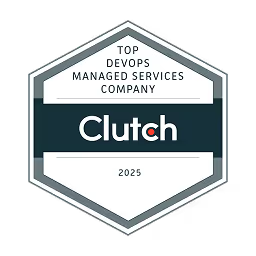Full-Cycle Blockchain ETL Solutions


We are pleased to be among Web3 innovators and enthusiasts




.avif)
.avif)
.avif)
.avif)
.avif)
.avif)
.avif)
.avif)

.avif)
.avif)
.avif)
.avif)
.avif)
.avif)
.avif)
.avif)

.avif)
.avif)
.avif)
.avif)
.avif)
.avif)
.avif)
.avif)


What is Blockchain ETL (Extract, Transform, Load)?
Blockchain ETL is a set of tools and processes designed to extract data from blockchain networks, transform it into a usable format, and load it into a database or data warehouse. It helps make blockchain data more accessible and analyzable. Here at Dysnix, we specialize in building custom ETL pipelines for blockchain projects of any complexity. Our engineers and blockchain experts know how to tailor ETL flows precisely for the project, solve the current tasks, and prevent future challenges.

Why is Blockchain ETL important?
Blockchain ETL is important because it simplifies the process of working with blockchain data. It allows businesses, researchers, and developers to analyze and visualize blockchain data, which is often complex and unstructured. Navigation in the world of blockchain data with an efficient ETL engine makes your project much more vital and competitive because you know what to expect from the market and can even sneak a peek at what comes next.

What kind of data can be extracted and processed using Blockchain ETL?
Blockchain ETL tools can extract various types of data, including transaction history, smart contract data, token transfers, addresses, and network metrics from different blockchain networks such as BNB, Ethereum, Solana, Polygon, and others. Dysnix can also develop a new custom ETL solution for the blockchain that isn’t on the list.

What main blockchains (like BNB, Ethereum, Solana, and Polygon) can your company support?
Our team completed many projects on various blockchains. We can build ETL for any of the most popular blockchains like BNB, Ethereum, Solana, and Polygon. Any other or custom blockchains are also discussible and we can develop a solution, especially for your project.

How is Blockchain ETL different from traditional ETL processes?
Blockchain ETL focuses on blockchain-specific data extraction, transformation, and loading. It often requires specialized tools and knowledge to handle the unique characteristics of blockchain data. In Blockchain ETL, data is extracted from distributed ledgers, consisting of immutable transactional records, smart contract interactions, and block information. This requires handling unique blockchain elements like block hashes and wallet addresses. Blockchain ETL must also account for the complexities of blockchain technology, such as maintaining data integrity across a decentralized network, which is not a concern in traditional ETL processes.

How does Blockchain ETL benefit businesses?
Blockchain ETL solutions help businesses unlock the value of blockchain data by making it accessible and usable within their existing systems. This can lead to improved decision-making, enhanced transparency, and increased efficiency in various operations. What is special about the solutions we create at Dysnix is that every ETL we’ve built is scalable from the moment of launch and cost-efficient. Contact us to get more information about our blockchain solutions.

What are some common use cases for Blockchain ETL?
Typical applications of Blockchain ETL include DeFi apps and platforms, cryptocurrency analytics, financial analysis, supply chain management, smart contracts analysis, market research, compliance and regulatory reporting, fraud detection and security, and blockchain data visualization. We’re familiar with all these types of projects, and you can read about our experience with them in our cases.

Do I need specialized skills to use Blockchain ETL tools?
Yes, using Blockchain ETL tools typically requires specialized skills or hiring teams like Dysnix to complement the internal team with extra blockchain expertise. Proficiency in ETL processes and tools, along with knowledge of data querying and manipulation languages like SQL, is crucial. Skills in programming languages, particularly those used in blockchain development like Solidity for Ethereum, can be beneficial for custom ETL processes. Analytical skills to interpret blockchain data effectively and apply it to relevant use cases are also important. So be sure that with our team, you’ll get all the stack of blockchain skills and knowledge your project requires.

What are some popular Blockchain ETL tools and platforms?
Popular Blockchain ETL tools include Google BigQuery for blockchain data, CoinGecko's API, Nansen (by the way, Dysnix participated in the success of Nansen as well), Amberdata, and others. These tools allow users to extract, transform, and load blockchain data. Dysnix can help you overcome the limitations of ready-made solutions and make you a custom one that will fit your needs entirely.

Can Blockchain ETL be used for real-time data processing?
Blockchain ETL can be used for real-time data processing but with certain limitations inherent to the blockchain itself. Blockchain ETL can be adapted to monitor and extract data as new blocks are added to the blockchain and analyze the mempool of waiting transactions, providing near real-time insights. This is particularly useful for applications requiring up-to-date information, like tracking high-frequency trading or real-time fraud detection.







-min.webp)

-min.webp)
-min.webp)
-min.webp)

-min.webp)
-min.webp)
-min.webp)
-min.webp)
-min.webp)
-min.webp)
-min.webp)
.webp)











